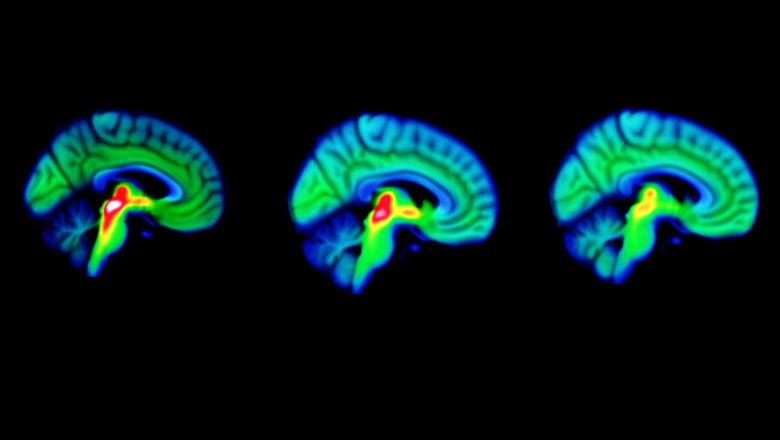S O U R C E : King's College LONDON
P R I M A L S O U R C E : The Lancet
Researchers from King’s College London have uncovered the earliest signs of Parkinson’s disease in the brain, many years before patients show any symptoms.

The results, published in The Lancet Neurology, challenge the traditional view of the disease and could potentially lead to screening tools for identifying people at greatest risk.
Parkinson’s disease is the second most common neurodegenerative disorder, after Alzheimer’s disease. The disease is characterised by movement and cognitive problems but is known to become established in the brain a long time before patients are diagnosed. Studying the crucial early stages of the disease, when treatment could potentially slow its progress, is a huge challenge.
The new study, funded by the Lily Safra Foundation, provides the first evidence of a central role for the brain chemical serotonin in the very earliest stages of Parkinson’s. The results suggest changes to the serotonin system could act as a key early warning signal for the disease.
Chief investigator Professor Marios Politis, Lily Safra Professor of Neurology & Neuroimaging at the Institute of Psychiatry, Psychology & Neuroscience (IoPPN), says: ‘Parkinson’s disease has traditionally been thought of as occurring due to damage in the dopamine system, but we show that changes to the serotonin system come first, occurring many years before patients begin to show symptoms. Our results suggest that early detection of changes in the serotonin system could open doors to the development of new therapies to slow, and ultimately prevent, progression of Parkinson’s disease.’
People with Parkinson’s disease have build-ups of the protein α-synuclein in the brain. While there is no clear cause for most people, a minority of cases are caused by genetic mutations. People with mutations in the α-synuclein (SNCA) gene are extremely rare but are almost certain to develop Parkinson’s disease during their lifetime, making them ideal for studying the train of biological events that leads to Parkinson’s disease.
The SNCA genetic mutation originates in villages in the northern Peloponnese in Greece and can also be found in people who migrated to nearby regions in Italy. Over two years, the researchers identified 14 people with the SNCA gene mutation from Greece and Italy and flew them to London for brain imaging and clinical assessments. Half of the participants had not begun to show any symptoms of Parkinson’s.
Data from the 14 people with SNCA gene mutations were compared with 65 patients with non-genetic Parkinson’s disease and 25 healthy volunteers. The researchers found that the serotonin system starts to malfunction in people with Parkinson’s well before symptoms affecting movement occur, and before the first changes in the dopamine system.
First author Heather Wilson, from the IoPPN, says: ‘We found that serotonin function was an excellent marker for how advanced Parkinson’s disease has become. Crucially, we found detectable changes to the serotonin system among patients who were not yet diagnosed. Therefore, brain imaging of the serotonin system could become a valuable tool to detect individuals at risk for Parkinson’s disease, monitor their progression and help with the development of new treatments.’
Dr Beckie Port, Research Manager at Parkinson’s UK, says: 'This is one of the first studies to suggest that changes in serotonin signalling may be an early consequence of Parkinson’s. Detecting changes that are happening in the brain in these early stages is a crucial gap in Parkinson’s research at the moment. Picking up on the condition earlier and being able to monitor its progression would aid the discovery of new and better treatments that could slow the loss of brain cells in Parkinson’s. Further research is needed to fully understand the importance of this discovery, but if it is able to unlock a tool to measure and monitor how Parkinson’s develops, it could change countless lives.'
Brain imaging was carried out using PET scans which are expensive and difficult to carry out. The researchers say further work is required to develop the scanning techniques in order to make them more affordable and straightforward for use as screening tools.
The study is available online.
Edited by Engadin, 23 June 2019 - 03:16 PM.












































